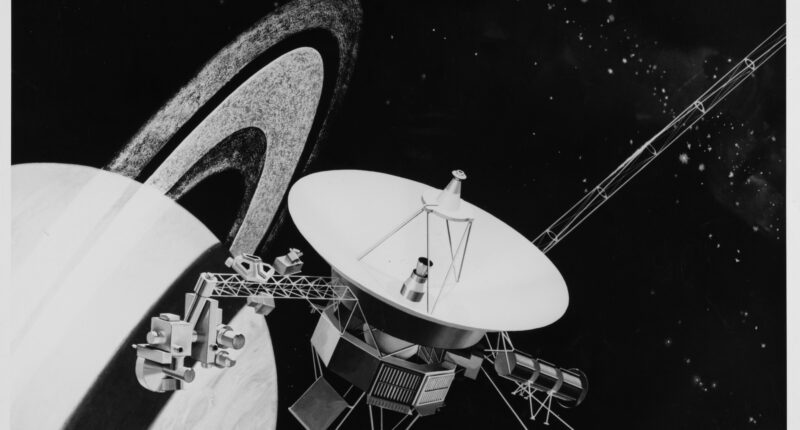SCIENTISTS have been left baffled by Saturn – arguably the most recognisable planet in the solar system owed to its enormous rings.
It turns out, they’re shrinking.
Observations made by Nasa’s Voyager 1 and 2 probes in the 1980s suggested that Saturn’s rings might be eroding.
Astronomers have decided to direct the James Webb Space Telescope at Saturn so they can peer further into the mystery.
They will also be utilising the Keck telescope in Hawai’i.
Researchers will try to figure out when Saturn’s signature rings might vanish – and why.


Their total erosion could take as long as 300million years, so humans hopefully won’t have to update the physics textbooks just yet.
But scientists are trying to make this figure more exact.
“We’re still trying to figure out exactly how fast they are eroding,” said Dr James O’Donoghue, the lead researcher of the study which has come out of the University of Reading, UK.
“Currently, research suggests the rings will only be part of Saturn for another few hundred million years.
Most read in Tech
“This may sound like a long time, but in the history of the universe this is a relatively quick death.
“We could be very lucky to be around at a time when the rings exist.”
Research from 2018 suggests that Saturn’s rings are being pulled inward by gravity and the planet’s magnetic field.
O’Donoghue, who worked for Nasa at the time, said the icy particles that make up the rings could fill an Olympic-sized swimming pool in just half an hour as they fall towards the planet.
“From this alone, the entire ring system will be gone in 300million years.
“But add to this the Cassini-spacecraft measured ring-material detected falling into Saturn’s equator, and the rings have less than 100million years to live.
“This is relatively short, compared to Saturn’s age of over 4billion years.”
Best Phone and Gadget tips and hacks

Looking for tips and hacks for your phone? Want to find those secret features within social media apps? We have you covered…
We pay for your stories! Do you have a story for The Sun Online Tech & Science team? Email us at [email protected]










